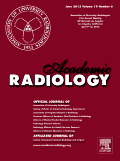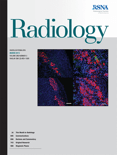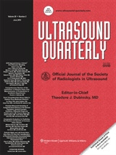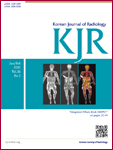
Chinese Journal of Academic Radiology
metrics 2024
Bridging Academic Research with Practical Applications
Introduction
Chinese Journal of Academic Radiology is a leading publication in the field of Radiology, Nuclear Medicine, and Imaging, published by SpringerNature. With an ISSN of 2520-8985 and E-ISSN 2520-8993, the journal aims to bridge the gap between academic research and practical application in radiological sciences. Recognized for its contributions to the advancement of imaging technology and patient care, it currently holds a Q3 quartile ranking for 2023. The journal has a commitment to sharing innovative research findings that address pressing challenges in the field, thereby fostering collaboration and knowledge exchange among researchers, professionals, and students. Although it does not currently offer open access options, the journal's comprehensive reviews and high-quality research articles present a significant resource for those seeking to deepen their understanding of radiological practices and innovations. The Chinese Journal of Academic Radiology continues to play a vital role in shaping the future of radiological science through rigorous scholarship and global discourse.
Metrics 2024
 0.23
0.23 0.40
0.40 -
- 6
6Metrics History
Rank 2024
Scopus
IF (Web Of Science)
JCI (Web Of Science)
Quartile History
Similar Journals

ACADEMIC RADIOLOGY
Leading the Charge in Imaging ExcellenceACADEMIC RADIOLOGY, published by Elsevier Science Inc, is a premier journal in the field of radiology, nuclear medicine, and imaging. With an ISSN of 1076-6332 and an E-ISSN of 1878-4046, this journal has established itself as a vital resource since its inception in 1994, featuring high-quality research that continuously shapes the landscape of medical imaging. Ranking in the top quartile (Q1) for its category in 2023, ACADEMIC RADIOLOGY boasts an impressive Scopus ranking of #38 out of 333, positioning it in the 88th percentile among peers. This journal is dedicated to advancing knowledge through original research articles, review papers, and case reports that highlight innovative techniques and technologies in radiology. Although it does not offer open access, it remains a go-to publication for professionals and students seeking to stay abreast of the latest developments and best practices in the field, ensuring that its contributors and readers are at the forefront of radiological science.

European Journal of Hybrid Imaging
Unlocking the Potential of Hybrid Imaging ResearchEuropean Journal of Hybrid Imaging, published by SpringerNature, stands as a pivotal platform for scholarly discourse in the rapidly evolving fields of hybrid imaging technologies and methodologies. Since its inception in 2017, this open access journal has significantly contributed to the interdisciplinary interface of biophysics, computer science, molecular medicine, and radiology. With its current standing in the Q2 and Q3 quartiles across various categories, it provides valuable insights and research outputs pertinent to both academic and clinical practitioners. The journal's rigorous peer-review process ensures the highest standards of scholarly integrity, while its open access format promotes global accessibility and encourages collaborative research efforts. Covering a diverse range of topics pertinent to hybrid imaging, the journal serves as an essential resource for researchers, professionals, and students alike, fostering innovation and knowledge exchange within the scientific community.

RADIOLOGY
Fostering knowledge for the next generation of radiologists.RADIOLOGY, published by the Radiological Society of North America (RSNA), stands as a premier journal in the fields of radiology, nuclear medicine, and imaging. Established in 1945, this esteemed journal has consistently provided groundbreaking research and insights, helping to shape advancements in diagnostic imaging and therapeutic interventions. With a commendable Q1 ranking in its category and a remarkable 99th percentile ranking in Scopus, RADIOLOGY continues to be a pivotal resource for clinicians, researchers, and students alike. Although not an Open Access journal, it offers a wealth of high-quality peer-reviewed articles that contribute significantly to the ongoing discourse in the medical community. With a strong focus on innovative techniques and the integration of new technologies, RADIOLOGY remains essential for professionals aiming to stay at the forefront of medical imaging practices.

Egyptian Journal of Radiology and Nuclear Medicine
Unlocking the Future of Imaging and TherapyThe Egyptian Journal of Radiology and Nuclear Medicine, published by Springer, is a premier open access journal that has provided valuable insights and advancements in the fields of radiology and nuclear medicine since its initiation in 2010. With an E-ISSN of 2090-4762, this journal is dedicated to bridging the gap between research and clinical practice, allowing for the dissemination of high-quality research to a global audience. Situated in Germany, it enjoys a robust reputation in the academic community, evidenced by its categorization in the Q3 quartile for 2023, as well as its Scopus ranking, where it holds a position of #225 out of 333 in the domain of Radiology, Nuclear Medicine and Imaging, placing it in the 32nd percentile. The journal's open access model ensures that researchers, professionals, and students can freely access innovative studies, reviews, and case reports that discuss the latest methodologies, technological advancements, and clinical outcomes in radiology and nuclear medicine. As it looks toward its converged years spanning from 2010 to 2024, the Egyptian Journal of Radiology and Nuclear Medicine continues to be an essential resource for advancing knowledge and fostering ongoing collaboration in these critical fields.

Abdominal Radiology
Unveiling the Future of Abdominal ImagingAbdominal Radiology is an esteemed journal published by Springer, focusing on the intricate and evolving field of abdominal imaging. With its ISSN 2366-004X and E-ISSN 2366-0058, this journal serves as a vital platform for disseminating high-quality research and clinical findings that advance both the understanding and practice of radiology specifically related to abdominal diseases. With a commendable impact, categorized in 2023 as Q2 in the fields of Gastroenterology, Radiological and Ultrasound Technology, and Radiology, Nuclear Medicine and Imaging, and Q1 in Urology, it attracts an audience eager for cutting-edge insights. Furthermore, its ranking in Scopus reflects its strong influence, with a notable position of #21 in Urology and #92 in Radiology. The journal adopts an Open Access model, facilitating a wider dissemination of knowledge and promoting collaborative research efforts on a global scale. The convergence of contributions from established researchers and emerging professionals alike enriches its content from 2016 to 2024, ensuring that readers remain at the forefront of abdominal diagnostics and therapeutic advancements.

Ultrasound Quarterly
Exploring the Future of Ultrasound Technology.Ultrasound Quarterly is a leading journal published by Lippincott Williams & Wilkins, dedicated to advancing knowledge and practice in the fields of radiology, nuclear medicine, and imaging. Established in 1988, the journal has served as a vital platform for researchers, clinicians, and students seeking to stay abreast of the latest advancements and techniques in ultrasound technology. With an impact factor that reflects its significance in the field—ranking in the Q3 category within its specialty based on the 2023 metrics—this journal reaches a global audience, facilitating knowledge dissemination and fostering innovation. Ultrasound Quarterly publishes original research, reviews, and clinical studies, making it an essential resource for professionals committed to enhancing patient care through effective imaging practices. To explore its comprehensive articles, visit the journal's website for easy access to the latest research findings.

KOREAN JOURNAL OF RADIOLOGY
Connecting Clinicians and Researchers in RadiologyKorean Journal of Radiology (ISSN: 1229-6929, E-ISSN: 2005-8330), published by the Korean Society of Radiology, stands as a leading international platform for the dissemination of high-quality research and advancements in the fields of radiology, nuclear medicine, and imaging. With a remarkable impact factor and ranked in the Q1 quadrant in its category, this journal showcases cutting-edge studies, clinical investigations, and comprehensive reviews that significantly contribute to the understanding and practice of medical imaging. Researchers, clinicians, and students alike will find the journal an invaluable resource, featuring innovative methodologies, case studies, and essential updates in imaging technology. Since its inception in 2000 and continuing through 2024, the Korean Journal of Radiology remains dedicated to promoting excellence and fostering collaborative research within the global radiology community, underscoring the importance of imaging in modern medicine.

Tomography
Elevating the standards of medical imaging research.Tomography is an esteemed peer-reviewed journal published by MDPI, focusing on a broad spectrum of topics related to medical imaging and diagnostics. Launched in 2015, this Open Access journal serves as a vital platform for researchers, professionals, and students in the fields of medicine, radiology, nuclear medicine, and imaging. With an impressive impact factor reflecting its relevance, the journal has achieved a quartile ranking of Q2 in both Medicine (Miscellaneous) and Radiology, Nuclear Medicine, and Imaging as of 2023. Renowned for disseminating high-quality research, Tomography welcomes original research articles, reviews, and technical notes, fostering innovation and collaboration within the scientific community. Housed in Basel, Switzerland, the journal aims to bridge the gap between fundamental research and clinical application, appealing to a diverse readership eager to advance the field of medical imaging.

EUROPEAN RADIOLOGY
Transforming Patient Care Through Cutting-Edge ImagingEUROPEAN RADIOLOGY, published by SPRINGER, stands as a prestigious international journal in the field of radiology, nuclear medicine, and imaging, with an impressive impact factor that underscores its significance among peers. With an ISSN of 0938-7994 and an E-ISSN of 1432-1084, this journal provides a platform for cutting-edge research and advancements in medical imaging from 1991 to 2024. Recognized as a Q1 journal in both general Medicine and the specialized Radiology category by 2023, EUROPEAN RADIOLOGY ranks an impressive #17 out of 333 in its field according to Scopus, placing it in the 95th percentile. While it does not currently offer Open Access options, the journal remains essential reading for researchers, professionals, and students striving to stay at the forefront of developments in diagnostic imaging and related technologies. By contributing to a comprehensive understanding of radiological practices, EUROPEAN RADIOLOGY plays a crucial role in shaping the future of medical diagnosis and patient care.

EUROPEAN JOURNAL OF RADIOLOGY
Bridging Research and Clinical Excellence in RadiologyThe European Journal of Radiology, published by Elsevier Ireland Ltd, is a premier peer-reviewed journal in the fields of radiology, nuclear medicine, and imaging. Established in 1981, it has carved a significant niche within the academic community, showcasing innovative research that enhances medical imaging practices and improves patient care. With an impressive ranking in the Q1 category for both Medicine (miscellaneous) and Radiology, Nuclear Medicine, and Imaging in 2023, the journal is recognized globally for its commitment to advancing scientific knowledge and improving imaging methodologies. The journal's Scopus ranking of #60/333, placing it in the 82nd percentile, underlines its reputation for high-quality research and scholarly contributions. While traditionally a subscription-based journal, it continually evolves to meet the demands of the academic landscape, aiming to bridge the gap between research and clinical practice. Researchers, healthcare professionals, and students alike can benefit from exploring its extensive archives and current publications, which are curated to foster education and innovation in the medical imaging domain.